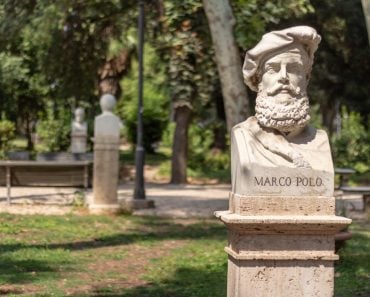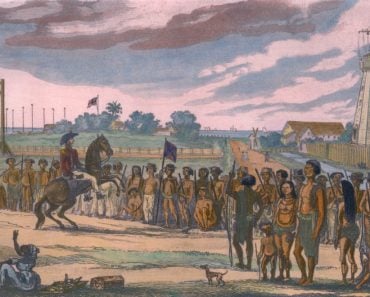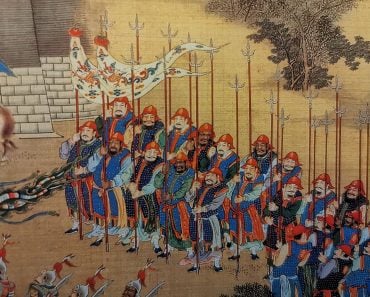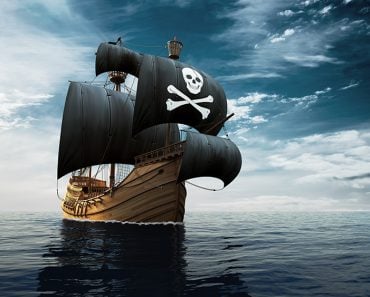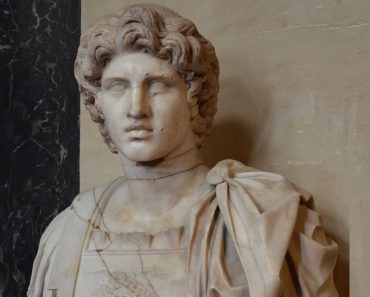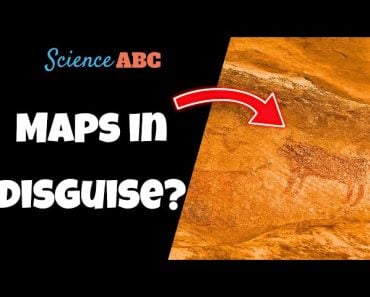Columbus fused elements of faith, economic opportunity, and territorial expansion into an indelible chapter in the annals of human history.
In the annals of history, few names shine as brightly as Christopher Columbus, the intrepid explorer who embarked on a journey that would forever alter the course of human civilization. His epic voyages, backed by the Spanish monarchy, stand as an enduring testament to the spirit of exploration and the relentless pursuit of new horizons. However, as we unravel the intricate tapestry of Columbus’s endeavors, we discover a compelling question lying at the heart of this narrative: Why did the Spanish monarchy choose to sponsor Columbus’s legendary voyages?
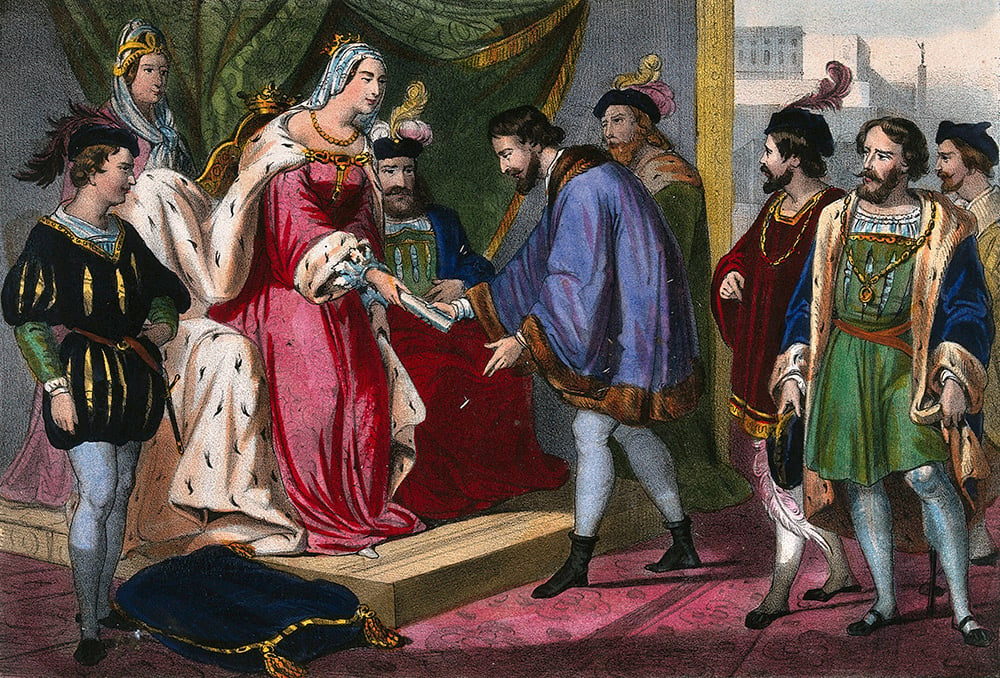
Recommended Video for you:
The Prelude To A Grand Voyage
The year was 1492. Europe, a continent steeped in tradition and monarchy, was poised to extend its reach beyond the boundaries of the familiar. In the midst of this historical backdrop, Christopher Columbus, a Genoese sailor with a vision that defied convention, sought to chart a new course to the riches of the East. His dream was to establish a westward route to Asia, bypassing the arduous overland journeys that had long been the lifeline of the lucrative spice trade.
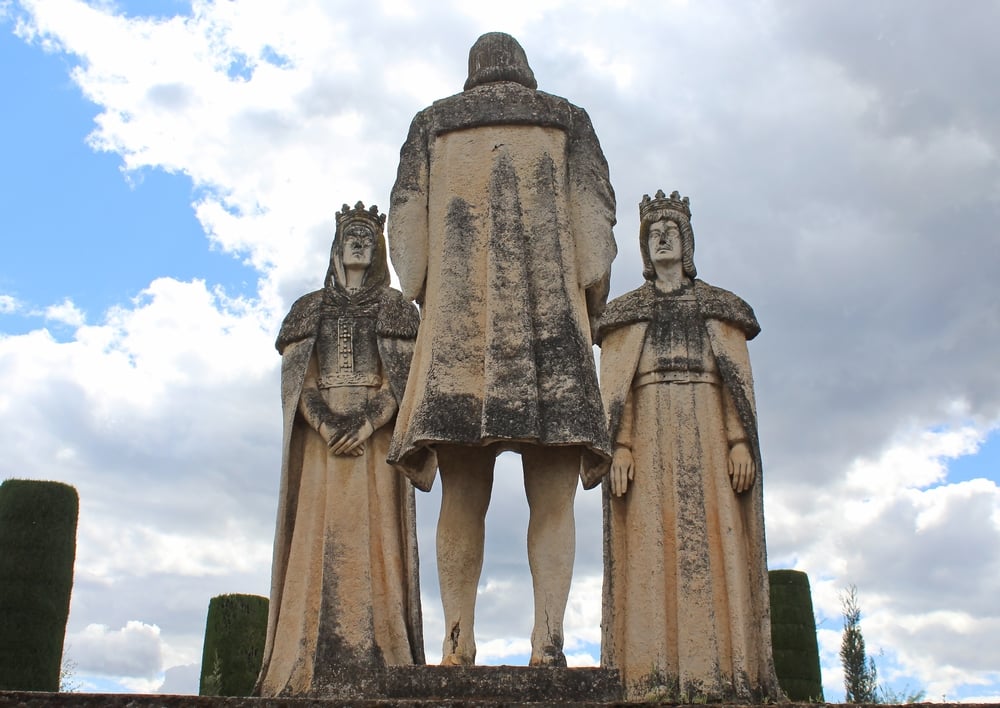
Columbus believed that a westward passage across the seemingly endless expanse of the Atlantic Ocean would lead him to the fabled shores of Asia. His conviction in the face of skepticism was unshakable, for he saw not only a pathway to wealth, but also an opportunity to spread the Christian faith to distant lands.
The Spanish Monarchs: Ambitions And Faith
Columbus, who set sail from Spain in 1492, did so with the unwavering support of King Ferdinand II of Aragon and Queen Isabella I of Castile. The monarchs, renowned for their piety and ambition, were destined to play a pivotal role in this historic undertaking.
As the three small ships, the Niña, the Pinta, and the Santa Maria, slipped away from the shores of Spain, they carried not only a crew of eager adventurers, but also the hopes and aspirations of an entire nation. Columbus, the indomitable visionary, stood at the helm, his eyes fixed on the western horizon.
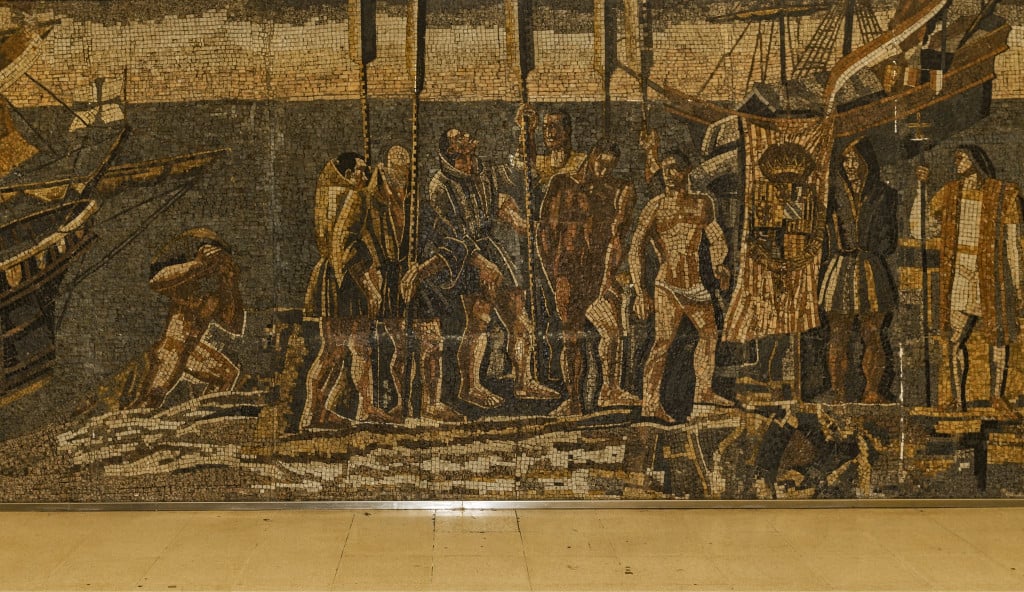
The journey was arduous, fraught with peril, and marked by uncertainty. For weeks, they sailed across the vast expanse of the Atlantic, with no land in sight. Fear and doubt cast a shadow over the crew, but Columbus, resolute in his belief, urged them onward. Finally, on October 12, 1492, the lookout on the Pinta spotted land—a small island in the Caribbean. They named it San Salvador, an apt choice for a land they saw as a blessed harbinger of their success.
The Multifaceted Motivations Behind Columbus’s Voyages
Columbus’s voyages were not mere escapades of an ambitious explorer. They were deeply rooted in a complex tapestry of motivations, the foremost being the desire for new trade routes.
In the 15th century, the Venetians and the Ottomans held a stranglehold on the lucrative spice trade, and the Spanish monarchs were keenly aware of the enormous wealth that awaited those who could find a direct route to Asia. Columbus’s proposal promised a shortcut to the riches of the East, a prospect that resonated with Ferdinand and Isabella’s grand ambitions for their kingdom.
Furthermore, in an era where faith and conquest were intertwined, Columbus believed that he could spread Christianity to far-flung lands. He saw his voyage as a divine mission, an opportunity to bring the light of Christ to those who dwelled in the darkness of paganism.
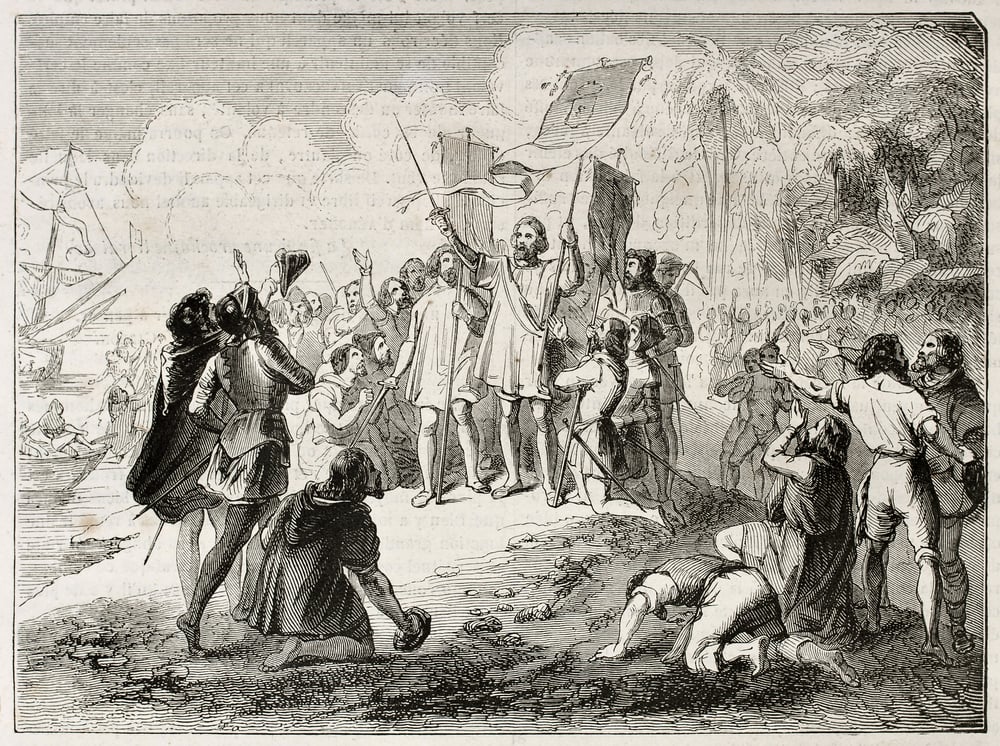
This religious fervor found a receptive audience in Ferdinand and Isabella. The Catholic monarchs, deeply committed to their faith, saw Columbus’s proposal as a chance to expand the dominion of Christianity. Queen Isabella, in particular, was known for her piety and moral character. She shared Columbus’s vision of converting heathen lands to Christianity, and her support for the expedition was influenced by this spiritual dimension.
Geopolitical Competition And Territorial Ambitions
Yet, the motivations behind Columbus’s voyages extended beyond religion and trade. He was motivated by the need to find a shorter route to Asia, where trade partners like India and China tempted European empires with unimaginable wealth. Geopolitical competition played a pivotal role in the Spanish monarchy’s decision to back his daring expedition. Spain, like other European powers, was engaged in fierce rivalry, especially with Portugal.
The Portuguese had already established profitable trade routes around the southern tip of Africa, known as the Cape of Good Hope. Spain was determined not to be left behind, and Columbus’s proposed voyage offered a chance to circumvent Portuguese dominance in the lucrative spice trade.
Columbus was not merely a dreamer; he was an ambitious adventurer with the skills to match his aspirations. His navigational expertise and unwavering determination convinced the Spanish monarchs that he could succeed where others had faltered. They saw him as a capable explorer who could navigate the treacherous waters of the unknown and bring glory to Spain.
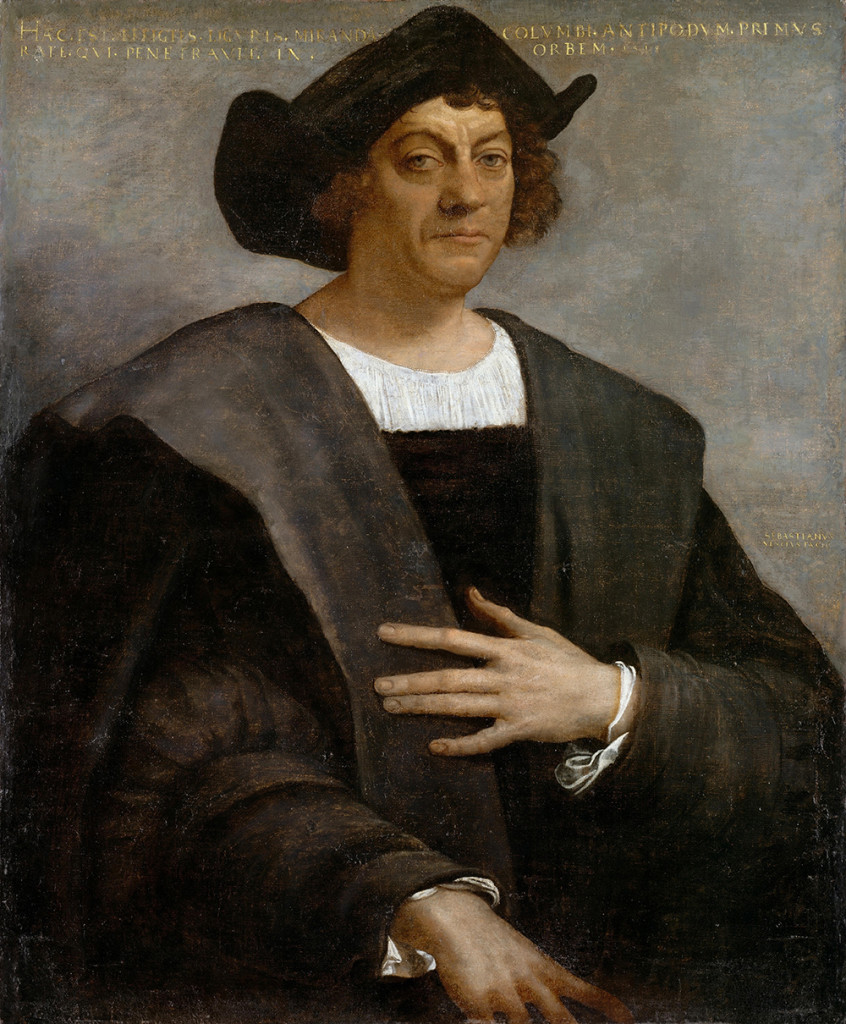
The Financial Backing And Territorial Expansion
Yet, financial backing was the linchpin of Columbus’s voyage, and it was provided by the Spanish monarchy. Queen Isabella, in particular, played a pivotal role in financing the expedition. She provided Columbus with the necessary funds and ships, recognizing the potential benefits that his journey could bring to Spain.
The prospect of territorial expansion also tantalized the Spanish monarchs. They saw Columbus’s voyages as an opportunity to lay claim to new lands and territories. The allure of undiscovered lands, ripe for conquest, held immense appeal for Ferdinand and Isabella. They envisioned a future where the Spanish crown’s dominion would extend far beyond the shores of Europe.
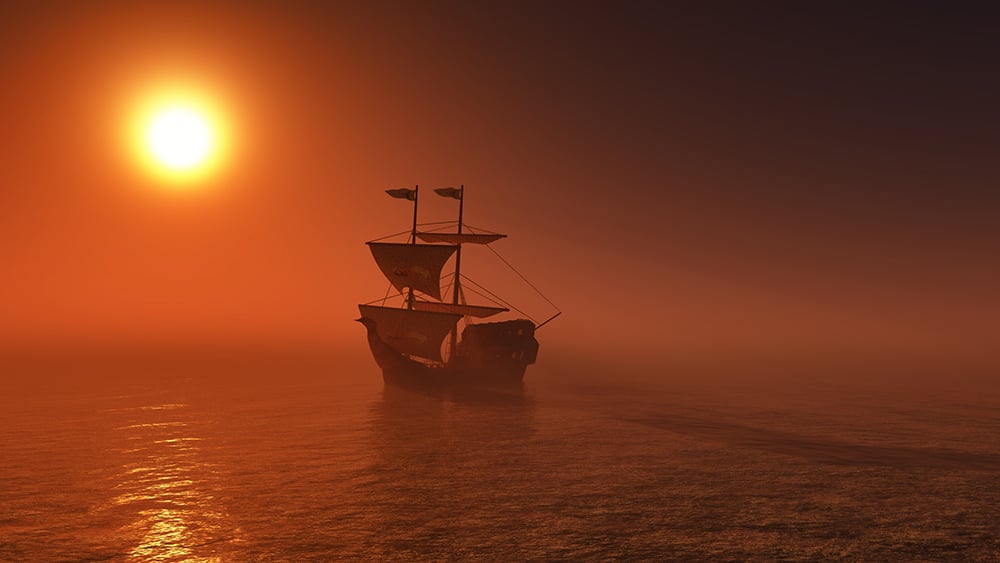
Conclusion
As Columbus embarked on his historic voyage, he carried with him not only the hopes and dreams of a nation, but the most profound motivations of an era. His journey, backed by the Spanish monarchy, marked a pivotal moment in history when the known world expanded, and the boundaries of possibility were redrawn. It was a journey that intertwined faith, ambition, trade, geopolitics, and the inexhaustible spirit of exploration.
The enduring legacy of Columbus’s voyages lies not only in the discovery of new lands, but also in the convergence of multifaceted motivations.
References (click to expand)
- Years In Spain: Columbus Finds a Sponsor.
- Symcox, G., & Sullivan, B. (2005). Christopher Columbus and the Enterprise of the Indies. []. Palgrave Macmillan US.
- Stolley, K. (2016). The Legacy of Christopher Columbus in the Americas: New Nations and a Transatlantic Discourse of Empire by Elise Bartosik-Vélez. Early American Literature. Project MUSE.
- B Quintana. Queen Isabel I of Castile: Power, Patronage, Persona ( ....
- RA Johnson. (1993) The Theological Tasks of The Voyages of Columbus.


